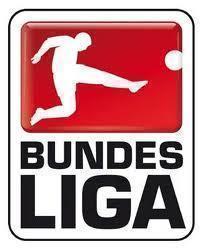In West Germany, north of the river Rhine, lies Borussia Park, a dauntingly built 54,057 seater stadium that was constructed in 2004 to the tune of £85 million, to host the fortunes of Borussia Monchengladbach, Germany’s sixth largest supported. In its infancy, the stadium managed to bear the true mark of its residents as it fell short of hosting matches in the 2006 World Cup, encapsulating the lugubrious misfortune of all things Monchengladbach.
Begrudged with 9 managers since 2003 and a wave of financial trouble that ultimately resulted in their relegation to the second tier in 2007, the Foals are now well and truly back as their phoenix from the flames act has been repeated on a more microcosmic scale, after new charge Lucien Favre took over just over a year ago with Borussia in 18th place and heading back down to the B League. Now, with a turnaround that has been the shining light of this year’s German domestic season, Monchengladbach lie in second in the Bundesliga after 22 matches.
Favre’s stewardship has been typically understated; the squad was refurbished in the summer for as little as just over £2 million but for no cost arrived the quick, dynamic style that Favre installs into his sides, a philosophy that won him the Swiss league twice with FC Zurich. Away from the microscope that is usually reserved for Bayern Munich and Borussia Dortmund, Monchengladbach have slipped through relatively unnoticed to lie 3 points behind leaders Dortmund and also be in possession of a DFB Pokal semi-final spot, Germany’s premier domestic cup. Furthermore, they have done it through playing a purposeful brand of football that has seen comparisons to Spain’s bench-mark Tika-Taka style in a way that has lit up the Bundesliga.
It has been a remarkable journey, made more prominent in the light of boardroom discontent that threatened to dishevel Favre last spring, when a consortium headed by former Borussia midfielder Steffan Effenberg attempted a buy-out which fell on the deaf ears of a fan-owned hierarchy. Sporting director Max Eberl, who Effenberg had proposed to overthrow, remains in his post whilst Favre, whom was being replaced by a tandem of Horst Koppel and Berti Vogts if Effenberg got his way, remains very much flavour of the month in Monchengladbach.
A 1-0 win against Bayern in the Allianz Arena on the opening day, a brilliant feat considering the machine-like reaction of Bayern in the immediate aftermath, was the perfect curtain raiser for what Germany’s national paper De Bild has referred to as “the white miracle”. In the reverse fixture, a 3-1 thrashing was handed to Jupp Heynckes’ side in January whilst draws were achieved against Leverkusen and Dortmund to contribute to their unbeaten season at the impressive Borussia Park. Last year’s Champions League semi-finalists Schalke 04 were hammered 3-0 the Saturday before last, whilst a 2-1 victory in Kaiserslautern is the latest result of a six game unbeaten streak. Only four games have been lost this season, all away from home, all by the score-line of a single goal to nil.
The shining light in Favre’s turnaround has been the revelation of Marco Reus, the 22 year old midfielder who forms the latest mouth-watering prospect off the Mesut Ozil, Sami Khedira, Marko Marin, Thomas Muller, Toni Kroos et al. producing conveyor belt of talent that lies in at the mercy of Die Mannschaft. Reus has netted 13 goals from 22 games, earning a move to Dortmund in the process after they triggered the £18 million release clause in his contract. The latest hot-property to grace Germany will join the table-toppers at the end of the season that still has such a lot to offer for Borussia in the face of the adversity that faced them this time last year. Upon taking the reins last Valentines’ Day, Favre won 6 from 12 matches to steer the ship to the safety of 16th and here they lie now, in a position only the foolhardy would have predicted, as genuine title contenders.
Roman Neustadter, the 24 central midfielder and 28 year old Brazilian centre- half Dante have also attracted the prying eyes of scouts from across Europe as they have both been integral to a scintillating season that has drawn parallels to Tottenham Hotspur’s own prosperity in the English Premier League. Without a Bundesliga title since 1977, tarred with the continuous pain of being the bad luck story, they have, like Tottenham, arrived at the top table by playing some wondrous football and even though, like Tottenham, they are likely to fall short, that is justice and joy enough for their long-suffering support.
Adam Gray @AdamGray1250
For more Football Blogs and opinion from football fans around the world
